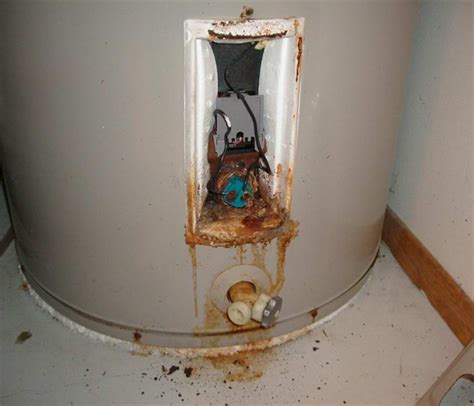How Do I Know If My Water Heater Is Broken
Ronan Farrow
Apr 04, 2025 · 3 min read

Table of Contents
How Do I Know If My Water Heater Is Broken?
Is your shower suddenly ice-cold? Are your dishes only lukewarm? A malfunctioning water heater can be a major inconvenience, but knowing the signs can save you from a chilly surprise (and a potential flood!). This guide will walk you through the common symptoms of a broken water heater, helping you determine if it's time to call a plumber.
Common Signs Your Water Heater is Failing
Several indicators suggest your water heater might be on its last legs. Let's break down the most common ones:
1. No Hot Water
This is the most obvious sign! If you're turning on your taps and only getting cold water, your water heater is likely the culprit. Check all faucets in your house to rule out a localized issue (like a clogged pipe).
2. Lukewarm Water
While not as dramatic as no hot water at all, lukewarm water is a significant sign of trouble. Your water heater may not be heating the water to the correct temperature, indicating a problem with its heating element, thermostat, or gas burner. This problem can gradually worsen, leading to even colder water over time.
3. Leaking Water
Water leaks are a serious problem. A leaking water heater can cause significant water damage to your home, leading to costly repairs. Check regularly for leaks around the base and pipes of your unit. Immediate action is required if you notice any leakage.
4. Strange Noises
Unusual noises emanating from your water heater are often a warning sign. Rumbling, popping, banging, or whistling sounds can indicate sediment buildup, a faulty heating element, or other internal problems. These sounds shouldn't be ignored.
5. Sediment Buildup
Over time, minerals in your water can build up at the bottom of your tank. This sediment reduces the efficiency of your water heater, leading to slower heating and potentially reduced water volume. Inspect your water heater's drain valve – if water comes out rusty or murky, it's a strong indicator of sediment buildup.
6. Age of the Water Heater
The average lifespan of a water heater is around 8-12 years. If your water heater is nearing or exceeding this age, it's more likely to develop problems. Regular maintenance can extend its life, but eventually, replacement is inevitable.
What to Do If You Suspect a Problem
If you've noticed any of these signs, it's crucial to address the issue promptly. Don't attempt major repairs yourself, especially if you're not familiar with plumbing and electrical systems. A faulty water heater can be dangerous.
Contact a qualified plumber for an inspection and repair or replacement as needed. They can diagnose the problem accurately and provide the best solution to restore your hot water supply safely and efficiently.
Preventative Maintenance
Regular maintenance can help prolong the life of your water heater. This includes:
- Annual flushing: This removes sediment buildup and improves efficiency.
- Inspection of the anode rod: This sacrificial rod protects the tank from corrosion. Replacing it as needed is crucial for longevity.
- Checking for leaks: Regularly check for leaks around the tank and pipes.
By understanding the common signs of a failing water heater and taking proactive steps, you can avoid unexpected cold showers and costly repairs. Remember, your comfort and safety depend on a well-functioning water heater!
Featured Posts
Also read the following articles
| Article Title | Date |
|---|---|
| How Does Tabby Make Money | Apr 04, 2025 |
| How Expensive Is Beef Tenderloin | Apr 04, 2025 |
| How Does A Two Speed Rear End Work | Apr 04, 2025 |
| How Does Subject To Work | Apr 04, 2025 |
| How Does Air Exchanger Work | Apr 04, 2025 |
Latest Posts
-
How Heavy Is A Car Door
Apr 04, 2025
-
How Heavy Are Jeep Doors
Apr 04, 2025
-
How Heavy Are Blue Pallets
Apr 04, 2025
-
How He Loves Us Sheet Music
Apr 04, 2025
-
How He Loves Music Sheet
Apr 04, 2025
Thank you for visiting our website which covers about How Do I Know If My Water Heater Is Broken . We hope the information provided has been useful to you. Feel free to contact us if you have any questions or need further assistance. See you next time and don't miss to bookmark.
